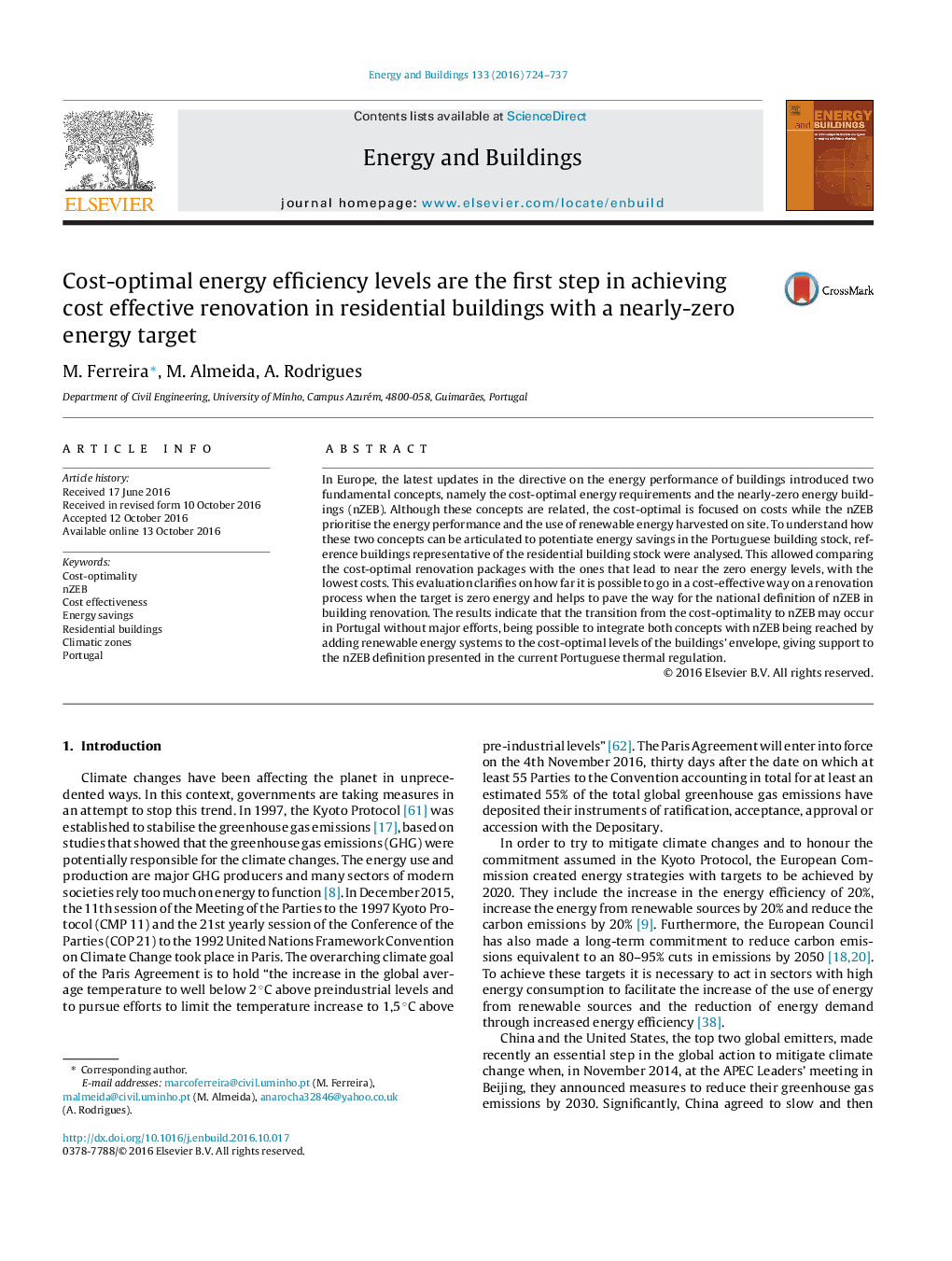| Article ID | Journal | Published Year | Pages | File Type |
|---|---|---|---|---|
| 4919548 | Energy and Buildings | 2016 | 14 Pages |
Abstract
In Europe, the latest updates in the directive on the energy performance of buildings introduced two fundamental concepts, namely the cost-optimal energy requirements and the nearly-zero energy buildings (nZEB). Although these concepts are related, the cost-optimal is focused on costs while the nZEB prioritise the energy performance and the use of renewable energy harvested on site. To understand how these two concepts can be articulated to potentiate energy savings in the Portuguese building stock, reference buildings representative of the residential building stock were analysed. This allowed comparing the cost-optimal renovation packages with the ones that lead to near the zero energy levels, with the lowest costs. This evaluation clarifies on how far it is possible to go in a cost-effective way on a renovation process when the target is zero energy and helps to pave the way for the national definition of nZEB in building renovation. The results indicate that the transition from the cost-optimality to nZEB may occur in Portugal without major efforts, being possible to integrate both concepts with nZEB being reached by adding renewable energy systems to the cost-optimal levels of the buildings' envelope, giving support to the nZEB definition presented in the current Portuguese thermal regulation.
Keywords
Related Topics
Physical Sciences and Engineering
Energy
Renewable Energy, Sustainability and the Environment
Authors
M. Ferreira, M. Almeida, A. Rodrigues,
